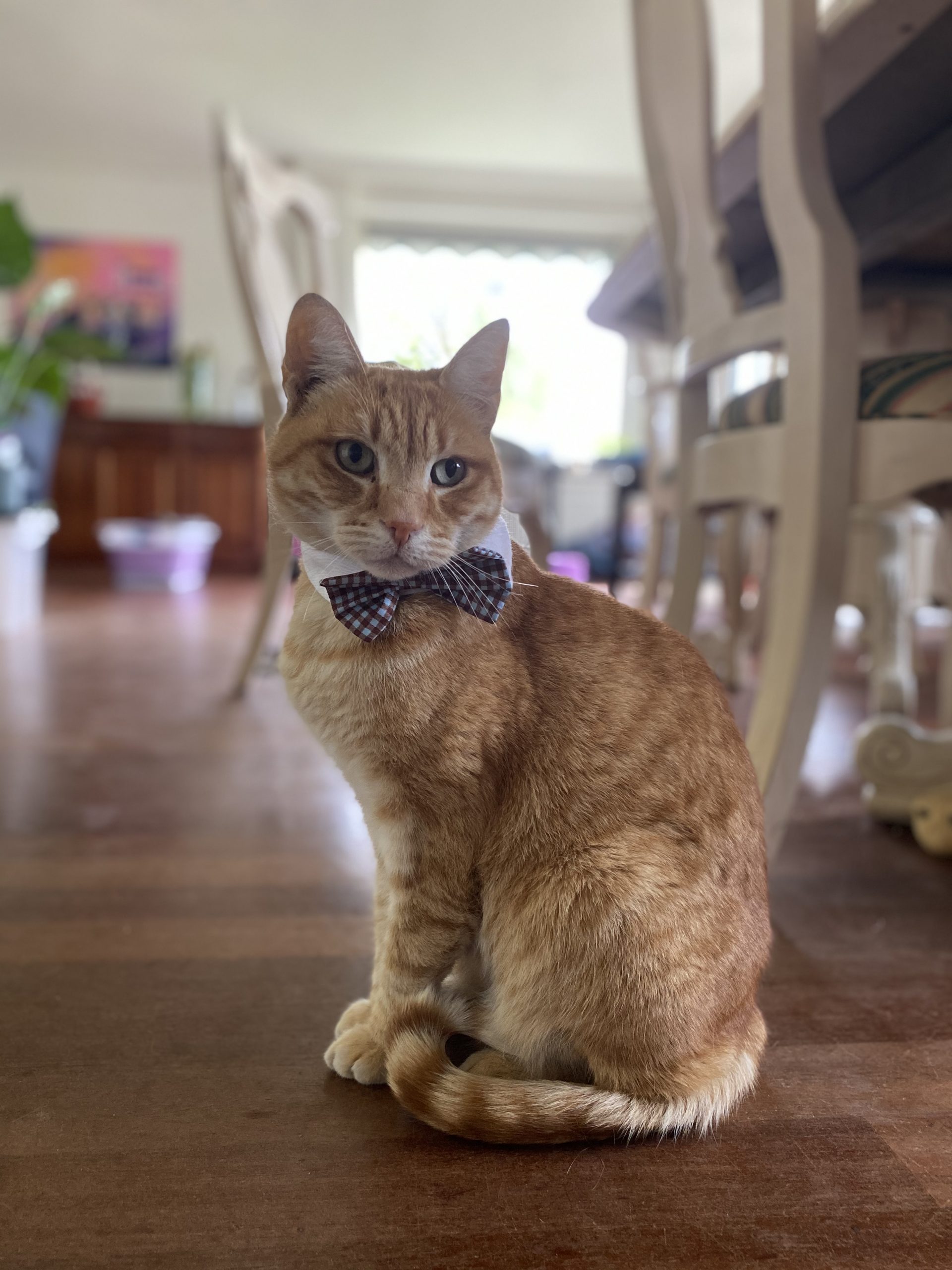
“I meow be handsome…but meowbe I am also hiding a virus.” The Absolute Antibody employee’s cat who first inspired our cat chimeric antibodies.
With millions of cases of COVID-19 in humans, it is no surprise that cats have become exposed to SARS-CoV-2. From reports of tigers and lions in a New York zoo contracting the virus from human handlers, to cat-to-cat transmission among domestic cats, it is clear that our feline friends are not immune to SARS-CoV-2, even if the disease manifestation itself may not mirror COVID-19 in humans. While we humans have been put under lockdown, few would consider their kitty a possible reservoir or indeed a potentially dangerous spreader.
To assist with serological analyses of feline SARS-CoV-2 infections, and aid research into intra- and inter-species transmission, Absolute Antibody is pleased to announce the launch of cat IgG1 and cat IgM versions of the anti-SARS/SARS-CoV-2 antibody CR3022. The spike glycoprotein antibody CR3022, first described in 2006, was shown to display high affinity for the new coronavirus in early 2020. It is now being used in COVID-19 diagnostic assays, as well as therapeutic research and development.
Since the start of the COVID-19 pandemic, Absolute Antibody has engineered the CR3022 clone into a wide variety of formats, including human antibodies in different isotypes and subtypes, as well as antibody fragments and species such as rabbit and mouse. The new cat chimeric antibodies feature the same antigen-binding domains as our other CR3022 formats, but they have been engineered to feature domestic cat (Felis catus) Fc domains to help researchers and veterinary diagnostics developers alike. The antibodies are all recombinantly produced for ensured batch-to-batch reproducibility, high purity and low endotoxin levels.
The new cat antibodies can be used for in vitro research to explore feline reaction to the SARS-CoV-2 virus, as well as for in vivo research in cat models; species-matched chimeric antibodies reduce anti-species immune responses in animal models, meaning the antibodies work for longer and cohorts respond more consistently. The cat antibodies can also be used as recombinant standards, controls and calibrators in veterinary serological immunoassays.
Up next, our other anti-coronavirus antibodies will also become available with cat Fc domains, including our two anti-nucleoprotein clones CR3009 and CR3018 as well as the COVID-19 patient-derived clones CV1 and CV30.
If you would like to find out more about our cat antibodies or how we can apply our species switching (to cat and beyond!) to other clones, please contact us. We have experience with a wide range of species (see the table here), and we are now developing ferret SARS-CoV-2 antibodies too. We can convert any clone into any species upon request, either those in our recombinant antibody catalog or a customer’s own antibody with our custom antibody engineering services.
Latest News
Upcoming Events
Please join us at the following conferences and events. Stop by our booth, or get in touch to arrange a meeting.
See All Dates
 United Kingdom (UK)
United Kingdom (UK)